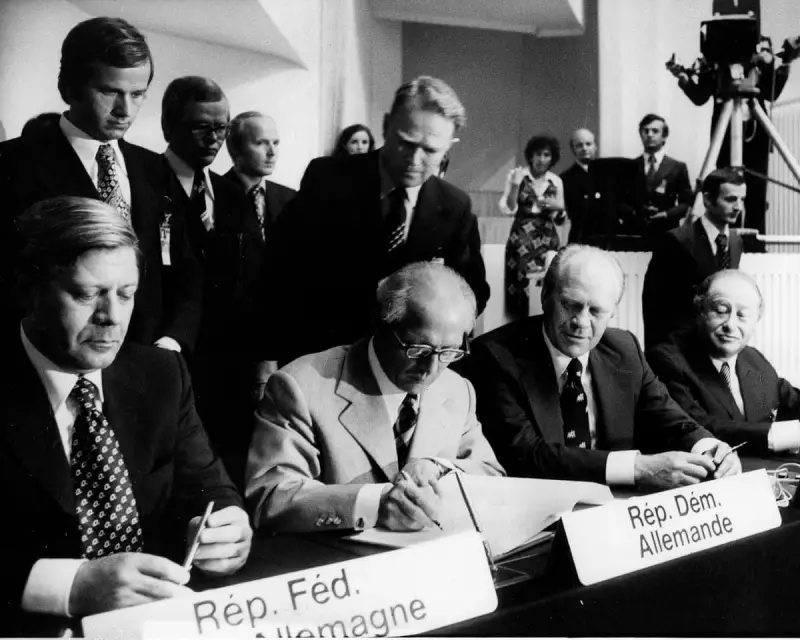
Fifty years ago, the Helsinki Accord was signed, marking a pivotal moment in European diplomacy. This groundbreaking agreement, forged during the height of the Cold War, not only eased tensions between East and West but also laid the foundation for modern human rights protections.
A Diplomatic Triumph
Negotiated over two years of intense discussions, the Helsinki Final Act was signed on 1 August 1975 by 35 nations. It represented an unprecedented commitment to peaceful cooperation across ideological divides. The accord's three "baskets" addressed:
- Security and confidence-building measures
- Economic, scientific and environmental cooperation
- Human rights and fundamental freedoms
Enduring Legacy
While critics initially dismissed it as mere symbolism, the Helsinki Accord proved transformative. Its human rights provisions empowered dissidents across the Eastern Bloc, giving rise to movements like Charter 77 in Czechoslovakia. The agreement's monitoring mechanism became a model for modern international organisations.
Relevance Today
In an era of renewed great power competition, the spirit of Helsinki offers valuable lessons. Its emphasis on dialogue over confrontation and its comprehensive approach to security remain vital. As one diplomat noted, "The Helsinki process showed that even adversaries can find common ground when they focus on shared interests."
The accord's anniversary serves as both a celebration and a challenge - can today's leaders match the vision and courage of their predecessors?





